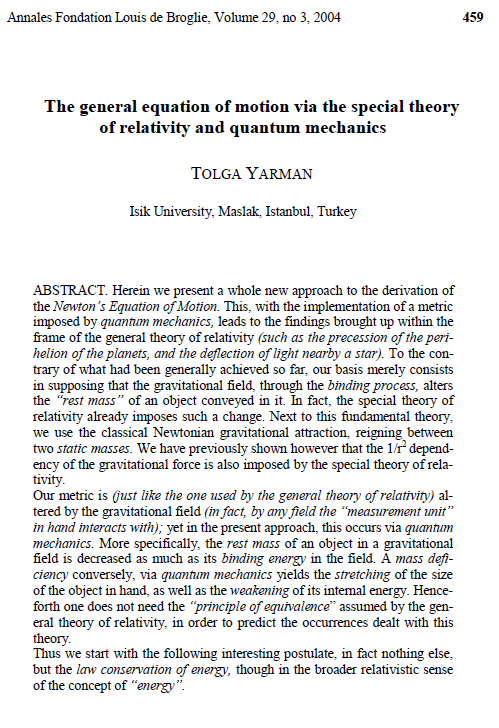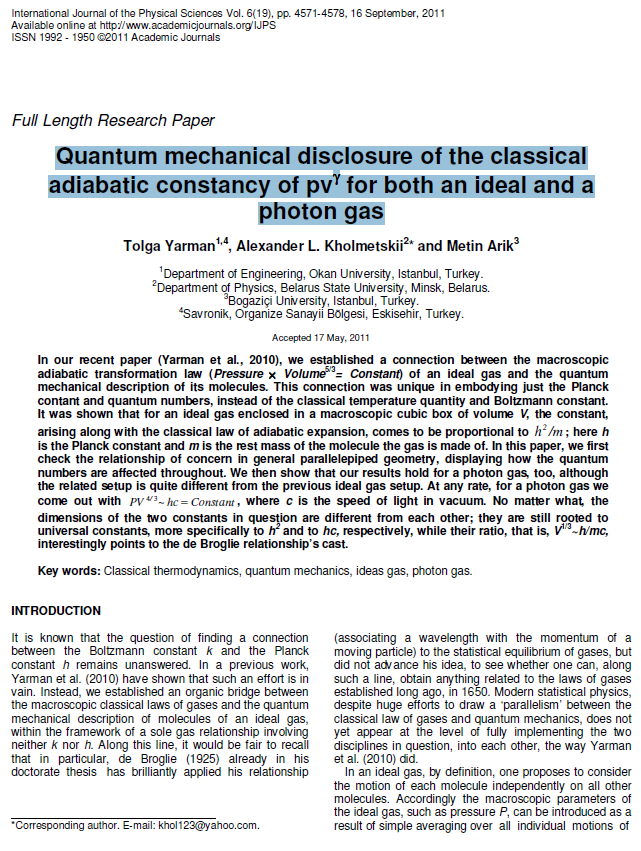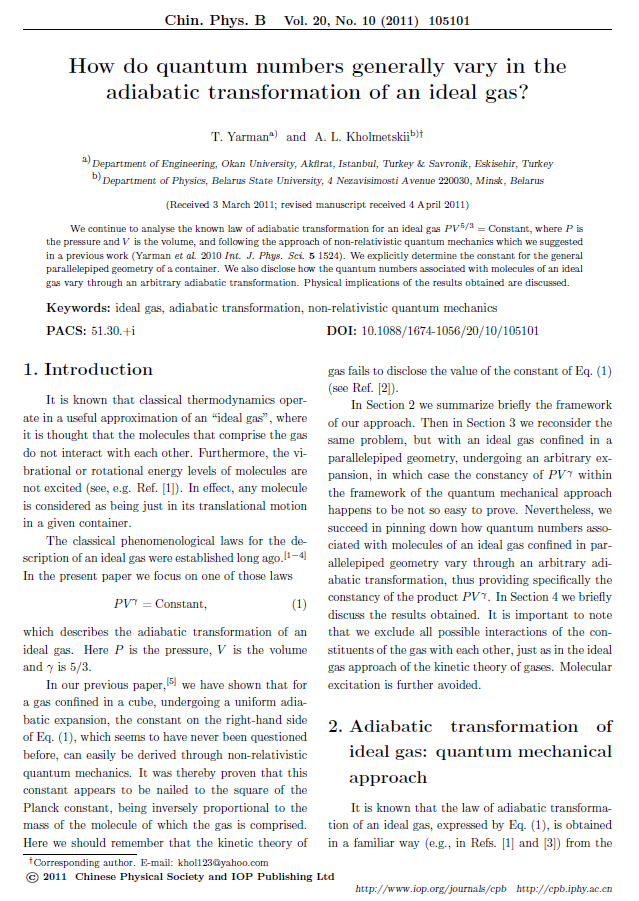THE END RESULTS OF GENERAL THEORY OF RELATIVITY, VIA JUST ENERGY CONSERVATION AND QUANTUM MECHANICS
Makaleler, UMA Yorum ekleTHE END RESULTS OF GENERAL THEORY OF RELATIVITY, VIA JUST ENERGY CONSERVATION AND QUANTUM MECHANICS
Tolga Yarman
Okan University, Akfirat, Istanbul, Turkey &
Savronik, Organize Sanayii Bölgesi, Eskisehir, Turkey
Herein we present a whole new approach which leads to the end results of the General Theory of Relativity, via just the law of conservation of energy (broadened to embody the mass & energy equivalence of the special theory of relativity), and quantum mechanics. Thus, we start with the following postulate.
Postulate: The rest mass of an object bound to a celestial body amounts less than its rest mass measured in empty space, and this, as much as its binding energy vis-à-vis the gravitational field of concern.
The decreased rest mass, is further dilated by the Lorentz factor, if the object in hand, is in motion in the gravitational field of concern. The overall relativistic energy must be constant on a stationary trajectory.
A Prediction Regarding the Softening of the Blue Shift of Light from Geosynchronous Satellites
Makaleler, UMA Yorum ekleA Prediction Regarding the Softening of the Blue Shift of Light from Geosynchronous Satellites
Tolga Yarman
Okan University, Akfirat, Istanbul, TURKEY
e-mail: tyarman@gmail.com
Metin Arik
Bogazici University, Istanbul, TURKEY
e-mail: metin.arik@boun.edu.tr
Alexander L. Kholmetskii
Belarus State University, Minsk, BELARUS
e-mail: kholm@bsu.by
.We base the present approach, on an alternative theory of gravitation, consisting essentially on the law of energy conservation broadened to embody the mass & energy equivalence of the Special Theory of Relativity, and remedying, known problems and incompatibilities, associated with the actually reigning conception. The mere rotation problem of say, a sphere, can well be undertaken, along the same idea. Accordingly, we consider the problem of gravity created by a rotating celestial body. Finally we apply our results to the case of a geosynchronous satellite, which is, schematically speaking, nothing but a clock placed on a considerably high tower. The approach ironically furnishes the Newton’s law of motion, which however we derive, based on just static forces, and not an acceleration, governing a motion. (There is anyway no motion for a geosynchronous satellite, when observed from Earth.) We predict accordingly that, the blue shift of light from a geosynchronous satellite on an orbit of radius should be softened as much as as compared to what is expected classically; here is Earth’s self rotation angular momentum, R Earth’s radius, and c the speed of light in empty space. We hope, the validity of this unforeseen prediction, can soon be checked out.



Son Yorumlar